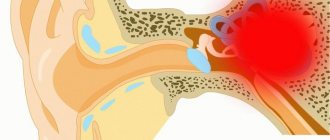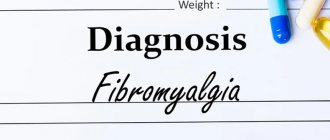Any person has heard the phrase: “All diseases come from nerves” and this is not without reason. In fact, scientists have proven the fact of the impact of the negative sphere on the human body and the appearance of any abnormalities in it.
People who are under stress for a long time experience stomach pain from nerves 3 times more often. In addition, other symptoms may appear, such as nausea and vomiting. If pain occurs due to mental stress, you should consult a doctor as soon as possible, because they may be the first sign of a serious pathology.
How are the stomach and nerves connected?
It would be interesting to find out whether nerves can cause stomach pain? At the first signs of discomfort, many people begin to take various medications that can worsen their health. With strong mental overexcitation, vasospasm occurs and blood flow to the mucous membrane of the gastrointestinal tract decreases.
Over time, the surface changes. The first manifestations of gastritis may appear. Gradually, the mucous layer of the stomach ceases to function normally, and various diseases develop (gastritis, peptic ulcer of the stomach and duodenum).
Inflammation also affects other organs of the digestive tract. Pain in the epigastric region appears, which is periodic or constant. Inflammation of the mucous membrane of the stomach and intestines can appear even with a normal diet, proper and healthy lifestyle.
At the initial stage of damage to the gastrointestinal tract, the following symptoms appear:
- abdominal pain in different areas (depending on the location of the inflammation);
- nausea and vomiting;
- belching of air that has an unpleasant odor;
- flatulence and bloating;
- heartburn, feeling of a full stomach;
- feeling of a lump in the throat;
- rapid heartbeat leading to tachycardia.
Important! If at least one of the above symptoms appears during a nervous disorder, you should immediately contact a gastroenterologist.
What else is dangerous about severe stress?
It is worth knowing that it is considered one of the triggering factors for the development of Irritable Bowel Syndrome2.
Irritable bowel syndrome (IBS) is one of the most common intestinal diseases3, the main manifestations of which5 are:
- pain and cramping in the abdomen
- bowel dysfunction (diarrhea and/or constipation);
- bloating, flatulence.
IBS refers to functional disorders of the intestine. What does it mean? In a healthy state, the intestines (or, more precisely, their walls) contract and ensure the passage of food. With IBS, the rhythm of contractions of the intestinal walls is disrupted, that is, its motor function is impaired.
Possible causes of the pathological condition
There are many factors that can provoke pain, nausea and vomiting in a person. The main ones are pathogenic microorganisms, but there are also psycho-emotional reasons: anxiety, stress and severe anxiety can lead to a decrease in the body's defenses.
As a result, the body's resistance sharply decreases and the chance of getting sick increases several times. Hence the pain of various types, radiating to the stomach. The factors that lead to discomfort are discussed below.
| Social phobia | A predisposing factor is a feeling of anxiety before an important event, being in the company of unknown people and the fear of not being liked by them |
| Severe stress or fear | Experiences against the background of a conflict with a loved one, refusal to hire for a desired position, etc. |
| Overexcitement | The reasons can be both positive and negative. Occurs against the backdrop of prolonged excitement before an important event. |
Most often, the cause of pathology is bullying and ridicule from classmates and peers. In addition, teachers and parents can have the same negative impact on the child due to pressure on him.
Children may also experience stomach pain at school.
Clinical picture of gastric neurosis
Of course, the main clinical sign of the problem under discussion is pain in the stomach or abdominal cavity. The nature of the painful sensations varies, in some cases it is sharp stabbing or cutting pain, in others it is a dull, squeezing and aching pain.
However, in addition to painful sensations, there are a number of symptoms that make themselves felt due to nervousness:
- Diarrhea or constipation, sometimes these conditions alternate.
- Feeling of nausea, which may be aggravated by vomiting.
- Attacks of heartburn for no apparent reason and an accompanying sour taste in the mouth.
- A feeling of heaviness and bloating, followed by belching and flatulence.
It is worth noting that as soon as the stress passes, the symptoms subside or dissipate on their own the very next day. If clinical signs bother you excessively often, last a long time, do not depend on stress and do not go away on their own, we can say that some kind of stomach disease has developed due to nervousness.
Nervous gastritis
An inflammatory disease characterized by damage to the gastric mucosa, the main cause of which is nervous diseases. The mechanism of development of the disease is based on impaired circulation of internal organs due to strong emotional stress.
As a result, the motility of the organ changes and the function of the stomach is disrupted. Bacteria that have entered the cavity begin to actively multiply and a new focus of inflammation appears. In addition to the main symptoms of nervous gastritis (abdominal pain, belching, heartburn and burning sensation), general fatigue of the body, increased fatigue, drowsiness, and disturbances in heart rhythm appear.
Often patients complain that it hurts to inhale air or they imply other diseases of the chest organs.
What to do next: diagnosis of the disease
First, you need to undergo an examination and diagnosis. When examining a patient, the doctor takes into account such important characteristics as elevated body temperature, tension in the stomach muscles, and even the type of vomit. After collecting an anamnesis, the patient must undergo a series of examinations that will help identify exacerbation of gastrointestinal diseases.
The most popular diagnostic method is gastroscopy. However, in some cases additional tests may be needed: biopsy, biochemical blood test, ultrasound, Helicobacter pylori test, x-ray.
If you have been diagnosed with an exacerbation of gastritis due to nervousness, then you also need to seek the advice of a psychotherapist. A competent specialist will help you establish the cause that provoked stress and further exacerbation of the gastrointestinal tract disease.
Nervous pancreatitis
Inflammatory disease of the pancreas caused by psycho-emotional stress. The mechanism of action of the disease is based on internal experiences that most often manifest themselves in childhood. Why does inflammation of the gland occur?
The fact is that a common cause of pathology is a lack of parental attention, bullying from peers, etc. Children begin to “eat up” their grievances, often eating sweets, processed foods, spicy and salty foods, which seem unusually tasty to them. These actions calm them down and they eat again and again.
In addition to the heavy load on the pancreas, young patients experience sudden changes in mood, their performance decreases and hormonal imbalance is noted. Signs of pancreatitis are severe girdle pain in the upper abdomen, nausea and vomiting, increased body temperature, and indigestion in the form of diarrhea.
I have a stomachache? Treat your nerves!
.
They can manifest as minor discomfort or torment to the point of exhaustion, making it impossible to even move. “They” are cramps in the stomach and intestines and are often accompanied by other disorders: heaviness, bloating, diarrhea, constipation and nausea. The spasms always seem to come unexpectedly. However, is this so? After all, any “behavior” of our body is due to some reason. In relation to gastrointestinal spasms, it is not always obvious.
Digestive problems: is it always about nutrition?
Spasms in the gastrointestinal tract are an involuntary sharp contraction of smooth muscles, accompanied by noticeable pain. Spasms manifest themselves primarily as pain in different parts of the stomach or intestines. Smooth muscle spasm can be triggered by a variety of diseases: gastritis, colitis, diseases of the gallbladder and kidneys, etc. Therefore, if you have regular spasms, you need to consult a specialist who will diagnose and prescribe treatment.
In the absence of serious problems, we, as a rule, rightly consider errors in the diet to be the cause of stomach cramps. However, the nature of spasms is varied and is not limited to poor nutrition. There is a catchphrase that many people have known since childhood that “all diseases come from nerves.” So: with regard to stomach cramps, it is one hundred percent true. Stress, as the human body’s response to overexertion, negative emotions, or simply monotonous bustle, is one of the main causes of not only spasms, but also “associated” symptoms: heartburn and belching, constipation or diarrhea, flatulence or nausea.
Moreover, it is often stress that provokes inappropriate eating behavior, which leads to more serious diseases of the gastrointestinal tract, which were mentioned above.
If your stomach hurts, treat your nerves!
Worry and anxiety, sadness and despondency, anger and anger - all these emotions hit the gastrointestinal tract like a target. And it is not surprising if the stomach or intestines react to nervous tension with spasms.
Why is this happening? The fact is that digestion is controlled by the nervous system. In a situation of stress, its work is disrupted, and manifests itself in the form of a malfunction between the contraction and relaxation of muscles, including in the digestive tract, and consequently in the work of the glands responsible for digestion. The amount of gastric juice, bile, and pancreatic enzymes (trypsin, lipase, etc.) also changes.
In addition, the brain gives a signal to the release of stress hormones cortisol and adrenaline into the blood, which also negatively affects the functioning of the digestive system, changing the amount of enzymes released, and therefore eating behavior. It is characteristic that these hormones act differently on different people: some are completely deprived of appetite, while others, on the contrary, cause overeating. As a result, some lose weight from stress, while others “eat stress,” usually with high-calorie and far from healthy food. And here it is - a full “bouquet” of gastrointestinal disorders, including spasms.
.
How to solve digestive problems
Cramps, like any other problem, are always easier to prevent than to treat. And if the cause of this disorder is stress, then no matter how trivial it may sound, you need to minimize the factors that cause it. Strong physical activity that allows you to relieve nervous tension, massage, breathing practices and meditation, walks in the fresh air, engaging in your favorite hobby - there are many opportunities that help you maintain your state of mind normally.
Proper nutrition is, of course, the basis for the well-coordinated functioning of the gastrointestinal tract. A varied diet rich in nutrients the body needs, eating small meals five times a day, following a drinking regime (at least 1.5-2 liters of water per day), chewing food thoroughly are very simple principles that help avoid unnecessary digestive problems. But fast food, snacks on the run, an abundance of fast carbohydrates (sweets, lemonade and alcohol, white bread) and animal fats in the diet are a direct path not only to cramps, but also to heaviness in the stomach, bloating and nausea.
If stress does make itself felt, the drug Gastroguttal® based on 4 medicinal herbs will help cope with it: valerian, belladonna, wormwood and mint. Thanks to the optimally selected proportion of components, Gastroguttal® has a mild soothing effect. It helps to cope with the immediate cause of digestive problems - stress, and eliminate discomfort in the stomach and intestines. The convenient release form in the form of drops allows you to avoid mistakes in dosage. Gastroguttal® can be used either once or on the recommendation of a doctor in a course of 20 drops 2-3 times a day.
.
If there is a clear predisposition to diseases of the stomach and intestines, it is important to consult a doctor in a timely manner. This will reduce the risk of developing serious diseases of the digestive organs (liver, stomach, pancreas, etc.) and prevent the development of such dangerous diseases as stomach ulcers, gastroduodenitis, pancreatitis, etc.
.
Treatment
Pain in the stomach and any part of the digestive tract caused by stress is treated in the same way as stress.
How to relieve stomach pain at home?
To do this, you should follow some rules that will allow you to quickly restore the normal functioning of your internal organs:
- rest and bed rest;
- same diet for the first week. You can refuse to eat for a while - after all, hunger allows the stomach to rest, relieving irritation and reducing the inflammatory process;
- minor physical exercise (only with the permission of the attending physician);
- eliminate the cause of pain - get out of a stressful situation (a psychologist or a good friend will come to the rescue);
- resort to the use of herbs: decoction of chamomile, yarrow, caraway, flax seed, etc.
Treatment can be carried out both in a hospital setting and on an outpatient basis
It is worth noting that only a qualified doctor can determine the cause of stomach pain. Sometimes the lower abdomen and other parts of it hurt due to diseases not related to the gastrointestinal tract. Therefore, in no case should you self-medicate, so as not to cause even greater harm to your health.
What measures to take
If you regularly experience abdominal pain after stress, you should visit a medical facility. The doctor will tell you what to do if your stomach hurts due to nervousness. First of all, the patient should contact a therapist. If necessary, he will give a referral to a gastroenterologist. He will conduct the necessary examinations.
It is very important that the patient goes to the doctor himself and makes an appointment on time
If a nervous type abnormality is suspected, the patient will be referred to a psychotherapist. Therapy consists of:
- rest and bed rest;
- following a strict diet;
- moderate physical activity;
- the use of natural decoctions based on chamomile, mint, cumin and flax;
- visiting a psychologist.
You can't keep grudges to yourself. The patient needs to protect himself from all sorts of worries. It is recommended to meditate or do yoga. The sick person should surround himself only with positive emotions.
From this video you will learn advice from a neurologist for abdominal pain:
Reviews
Maria, 17 years old: My stomach often hurts due to nervousness. The first time I noticed that I began to experience discomfort when I was very nervous (at the Unified State Examination at school and entrance exams to a university). In addition to abdominal pain, there could be a feeling of a lump in the throat, a feeling of nausea, and sometimes upset stool. I had to see a doctor because I didn’t know what to do with this problem. The treatment was aimed at calming the nerves and following a diet for several weeks.
Irina, 42 years old: I heard that the stomach can hurt due to nervousness. But I couldn’t even think that the problem would affect me. My job is stressful; I work in a hospital in the oncology department. Unfortunately, I often encounter the pain of other people and transfer all the experiences through myself. My stomach began to hurt after 4 years of my work in this department. The following system has already been developed: as soon as you get very nervous, pain in the stomach, rumbling and intestinal spasms appear. I am following all the doctor’s recommendations, but I still can’t eliminate my anxiety.
Stomach ulcer
The concept of psychosomatic disorder has long been known to doctors. It refers to a situation where mental trauma caused by stress does not manifest itself in the behavior and thinking of the patient, but takes on the form of certain diseases. Hence - strokes, heart attacks and stomach ulcers.
At the moment of stress, in a certain category of people, a special enzyme begins to be produced in the stomach, acidity accumulates, and if the situation is not resolved, the tension does not subside, the stomach seems to process itself. This is how an ulcer appears.
Stomach ulcers under stress are acquired by people prone to self-criticism, nervous about any reason, explosive and unbalanced. It has been proven that the functioning of the stomach directly depends on the emotional state of a person. Aggression and malice speed up the processing of food, and feelings of fear and negative thoughts, on the contrary, slow down the functioning of the stomach, manifesting itself in spasms.
Individuals who are accustomed to taking everything upon themselves, who are overly responsible and who demand it from others also suffer from ulcers. Suffering from one's own unfulfillment, suspiciousness, lack of love, and self-flagellation lead to stomach ulcers. Such people constantly need stimulants: coffee, cigarettes, alcohol, and this aggravates the situation.
An ulcer, like gastritis, can be common and nervous. With a common ulcer, a person leads himself to it through excessive consumption of coffee, cigarettes, alcohol, and poor diet. When turning to a doctor, he can specifically say what, how and where he hurts. The pain goes away after taking the course of treatment prescribed by the doctor.
With a nervous ulcer, the patient hurts “everything and everywhere.” It occurs due to stress. The patient sweats, fusses, worries, and is afraid of something. Medicines for the stomach have no effect on him, but sedatives for the nerves help. Nervous ulcers are treated by a tandem: a gastroenterologist and a psychotherapist.
When a person is under stress, his entire nervous system is affected. The stomach, as an organ rich in nerve fibers, reacts very painfully to this.











